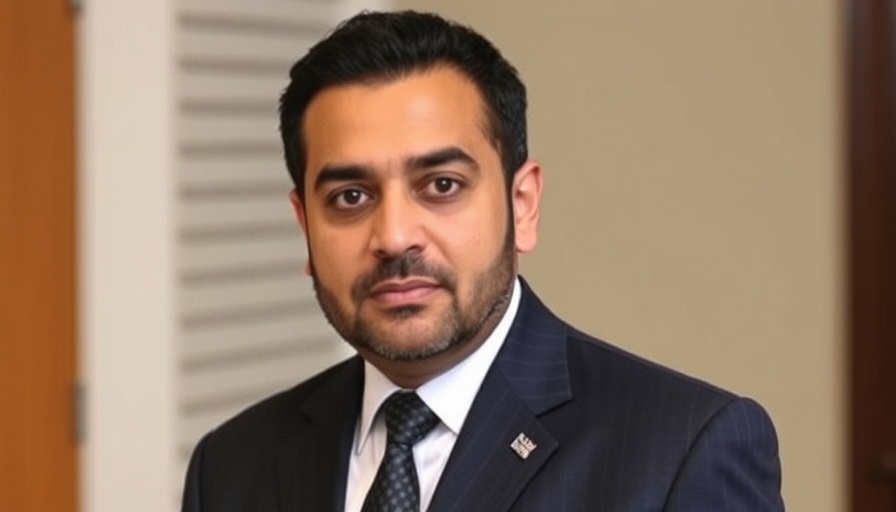
Texas Man Arrested for Threats Against NYC Candidate
A 44-year-old resident of Plano, Texas, named Jeremy Fistel has been arrested for allegedly making a series of threatening messages directed at New York City mayoral candidate Zohran Mamdani. This case underscores the alarming trend of political threats that have increasingly infiltrated electoral processes.
The Disturbing Details of the Threats
According to the Queens District Attorney's office, Fistel left at least four threatening messages at Mamdani's office beginning in June and continuing into July. The threats included vile anti-Muslim rhetoric and explicit warnings that have raised serious concerns about the safety of public officials. The most chilling message reportedly warned Mamdani to "watch his back and his family's backs," while labeling him a terrorist.
The Legal Fallout: Charges and Consequences
Fistel is facing a 22-count grand jury indictment that includes charges of making terroristic threats as a hate crime. If found guilty, he could serve up to 15 years in prison for his actions. Prosecutors have emphasized the severity of the threats, pointing out that they were not only directed at Mamdani himself but also included threats to his wife and children.
The Broader Context: Political Violence on the Rise
This incident is not an isolated case; it reflects a broader pattern of political violence and vitriol in the United States. The rhetoric surrounding political candidates has increasingly become hostile, leading to an atmosphere where threats are more frequently made. Authorities, including Queens District Attorney Melinda Katz, have made it clear that they will not tolerate threats made to public officials.
Public Reaction: A Community Rallying for Safety
Reactions from the public have ranged from shock to anger. Many in the Dallas Fort Worth area are particularly concerned about the implications of such threats on public discourse and elections. Community leaders have called for increased measures to protect candidates and ensure that political discussions remain respectful and safe for all involved.
Taking Action: What Can Communities Do?
As this situation unfolds, it raises important questions about how communities can take a more proactive stance against political threats. Workshops that educate citizens on addressing hate and bigotry, encouraging civic engagement to support candidates respectfully, and creating platforms for open discussion can play fundamental roles in altering the current climate. Activism can manifest not only in rallies but also in constructive engagement with local leaders.
This case serves as a clarion call for all of us in the Dallas Fort Worth area to reflect on the state of political discourse and take steps to foster a more civil environment. Gatherings for discussion, outreach programs, and support networks for public officials can make significant contributions to diminishing hate speech and threats.
If you care about the safety of public discourse, now is the time to take action. Get involved with community organizations that promote peaceful political dialogue, support local candidates through respectful discussions, and work to ensure that our political systems remain a space for constructive debate rather than fear and hostility.
 Add Row
Add Row  Add
Add 




Write A Comment